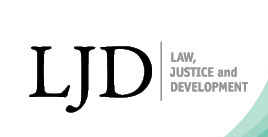Overview
Societal exclusion of persons with disabilities from political space finds deep roots in history and persists as a contemporary human rights challenge. While information and communication technologies (ICTs) have the potential to facilitate participation of persons with disabilities in community life, they have the potential to create additional barriers and to further entrench exclusion.
The United Nations Convention on the Rights of Persons with Disabilities (CRPD) responds to ICT marginalization in several respects. Its Preamble acknowledges the importance of accessible ICTs in realizing the human rights of persons with disabilities and in two of its articles of general application. These statements recognize accessibility as a general principle, and substantive rights in the CRPD likewise reference the importance of accessible ICTs.
BBI is working internationally to advance ICT inclusion for persons with disabilities. BBI’s ICT team hosts the World Bank’s Global Forum for Law, Justice and Development website. BBI is partnering with DPOs in developing countries to develop accessible web-based materials and learning platform to advance disability rights advocacy.
BBI Chairman, University Professor Peter Blanck, is actively collaborating with global partners to advance implementation of the CRPD in ICT accessibility for person with intellectual and print disabilities. Blanck’s recent book eQuality was published by Cambridge University Press in 2014 and has been widely disseminated. Blanck serves on the G3ict with Ambassador Luis Gallegos, first chair of the Ad Hoc Committee that drafted the CRPD.
BBI senior research fellow, Deepti Samant Raja, is a leading expert on accessible ICTs and access to assistive technology. She serve on the UNICEF Task Force on Assistive Technology and Children with Disabilities and advises the World Bank Global Forum on Law, Justice and Development.
BBI Senior Vice President for International Programs, Janet Lord, is collaborating on development of accessible e-learning platforms to advance participatory human rights education around the CRPD. Her work takes her to Turkey, South Korea, Africa, and other global destinations.
Partners
